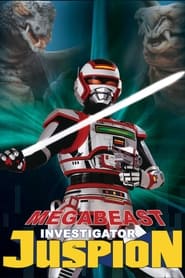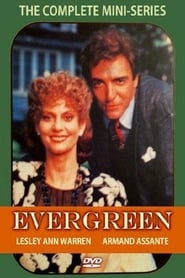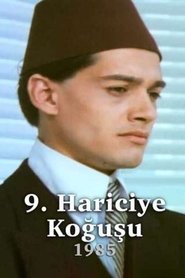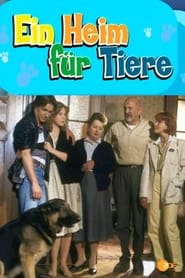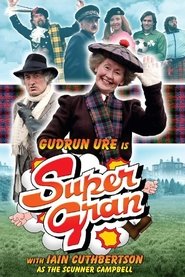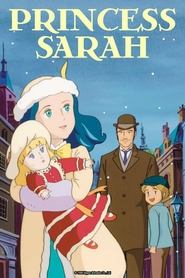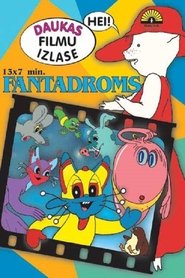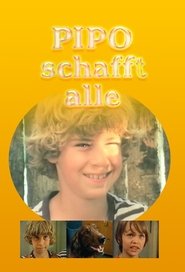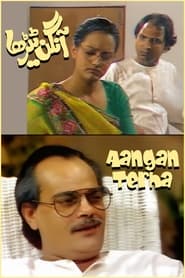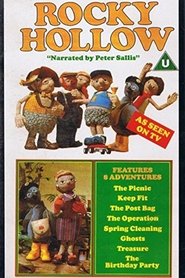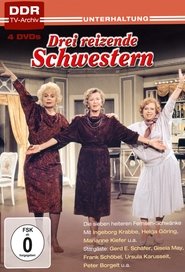New Family TV Series on Tub Tv - Page 407
-
Megabeast Investigator Juspion
1985
star 7.8Juspion's parents were killed by space pirates when he was a baby. After escaping to the planet Eijin, he is raised by a space hermit. He eventually embarks on a quest to fight the Mega beasts and defeat Satan Gorth. Hetravels from planet to planet until he finally arrives on Earth. Wearing a special suit, he has super human powers and a transforming spaceship. -
Evergreen
1985
Evergreen
1985
star 4.5Based on the novel by Belva Plain, covering a time span from 1909 to 1959. The story begins in New York's Lower East Side with the arrival of Polish-Jewish immigrant Anna (Lesley Ann Warren). At first employed as a humble seamstress, Anna is whisked into a whole new world when she becomes the wife of the enterprising Joseph Friedman (Armand Assante), who eventually becomes a wealthy Westchester contractor. Even so, Anna's heart belongs to Paul Lerner (Ian Shane), the son of the prosperous Fifth Avenue family which employs her relatives. In 1918, Anna gives birth to Paul's daughter, allowing Joseph to believe that he is the father. The secret surrounding Anna's child will lead to a daunting and frequently heartbreaking chain of events, culminating decades later in the newly formed state of Israel, where Anna's grandson Eric hopes to "find himself" -- and ends up finding more than he bargained for. -
9. Hariciye Koğuşu
1985
9. Hariciye Koğuşu
1985
-
Ein Heim für Tiere
1985
-
Super Gran
1985
Super Gran
1985
star 6.3Adapted from Forrest Wilson's books, the children's programme revolves around a grandmother with super powers and her arch nemesis, The Scunner Campbell. -
Run for the Sun
1985
-
Princess Sarah
1985
Princess Sarah
1985
star 8.1Sarah Crewe, the young daughter of a wealthy Englishman in India, starts attending a prestigious boarding school in London. However after a series of unexpected tragic events, she is forced to become a maid at the school. -
Life with Grandpa
1985
Life with Grandpa
1985
Created by The Family International, Life with Grandpa is a series of VHS Tapes that focus on seemingly innocent principles about being a true Christian, only to have perverted and graphic undertones. -
Fantadrome
1985
Fantadrome
1985
Fantadroms is a Latvian children's sci-fi cartoon by production company Studio Dauka. The episodes were released sporadically between 1985 and 1995, and all thirteen of them were released as a collection on DVD in 2006. The hero of the show is a yellow shape-shifting robot called Indrikis XIII, who usually takes the form of a cat. He flies through space, mediating various disputes between the other characters. One recurring dynamic in the show is the love triangle between Indrikis XIII and Receklite - the flying purple cat-octopus with whom he is in love with, and the rat – who is in love with Indrikis. Other recurring characters include a cow, a (human) woman, and an amorphous pink blob. The episode "Salt" won the Lielais Kristaps award for best animation in 1985. The show has no dialogue and drama unfolds through pantomime and expressive noises such as grunts, groans, and laughter, which allows the show to cross language barriers. -
Domov
1985
Domov
1985
-
The Sand Creature
1985
The Sand Creature
1985
Piesočná potvorka (lit. The Sand Creature) is a 1985 Czech television miniseries based on Edith Nesbit's 1904 children's novel Five Children and It. The four Majer children—Janka, Braň, Cyril and Vladek—spend holidays together at a cottage, with their aunt Marta, who takes care of them in their parents' absence. One day, the older children decide to dig in an old sandbox and find an ancient wonder: Brontofusika, a prehistoric creature that can grant wishes. So Janka wishes that everyone would be as beautiful as the heroes from a fairy tale. It happens. No one recognizes the children in this disguise, not even their own aunt, which brings a lot of funny but also unpleasant situations. But the magic only works until sunset! -
Malý Muk
1985
Malý Muk
1985
-
Sršne v úli
1985
Sršne v úli
1985
-
Birthmark
1985
Birthmark
1985
star 4A funny story about a little boy everybody call Pipo and his summer vacations in the village. -
Aangan Terha
1985
Aangan Terha
1985
star 10The drama is based on many stories on multiple issues of the society and indirect criticism of the Martial Law and the military regime in Pakistan and the electoral system. Many major Pakistani stars and artists played guest roles including the great comedians like Late Lehri, Late comedian Moin Akhtar and Late Mahmood Ali. The twist occurs when the writer Anwar Maqsood appears near the end of the serial to inform the characters that the serial is about to end. -
Rocky Hollow
1985
Rocky Hollow
1985
star 7Rocky Hollow was a stop-motion animation children's television series made in Wales. The show is narrated by Peter Sallis, who became the voice of Wallace in Wallace and Gromit This was the first children's television show produced by Bumper Films which later made Fireman Sam, Starhill Ponies and Joshua Jones for the BBC in production with S4C, Mike Young Productions and Prism Art and Design Ltd. The whole series has been released on various videos but so far has not been released on DVD until 2014.
 Netflix
Netflix
 Amazon Prime Video
Amazon Prime Video
 Apple iTunes
Apple iTunes
 Apple TV Plus
Apple TV Plus
 Disney Plus
Disney Plus
 Google Play Movies
Google Play Movies
 Paramount Plus
Paramount Plus
 Hulu
Hulu
 HBO Max
HBO Max
 YouTube
YouTube
 fuboTV
fuboTV
 Peacock
Peacock
 Peacock Premium
Peacock Premium
 Amazon Video
Amazon Video
 The Roku Channel
The Roku Channel
 AMC+
AMC+
 Kocowa
Kocowa
 Hoopla
Hoopla
 The CW
The CW
 Vudu
Vudu
 Starz
Starz
 Showtime
Showtime
 PBS
PBS
 Pantaflix
Pantaflix
 FXNow
FXNow
 Tubi TV
Tubi TV
 Kanopy
Kanopy
 Comedy Central
Comedy Central
 Crunchyroll
Crunchyroll
 Microsoft Store
Microsoft Store
 Redbox
Redbox
 Sun Nxt
Sun Nxt
 ABC
ABC
 DIRECTV
DIRECTV
 Crackle
Crackle
 Fandor
Fandor
 Plex
Plex
